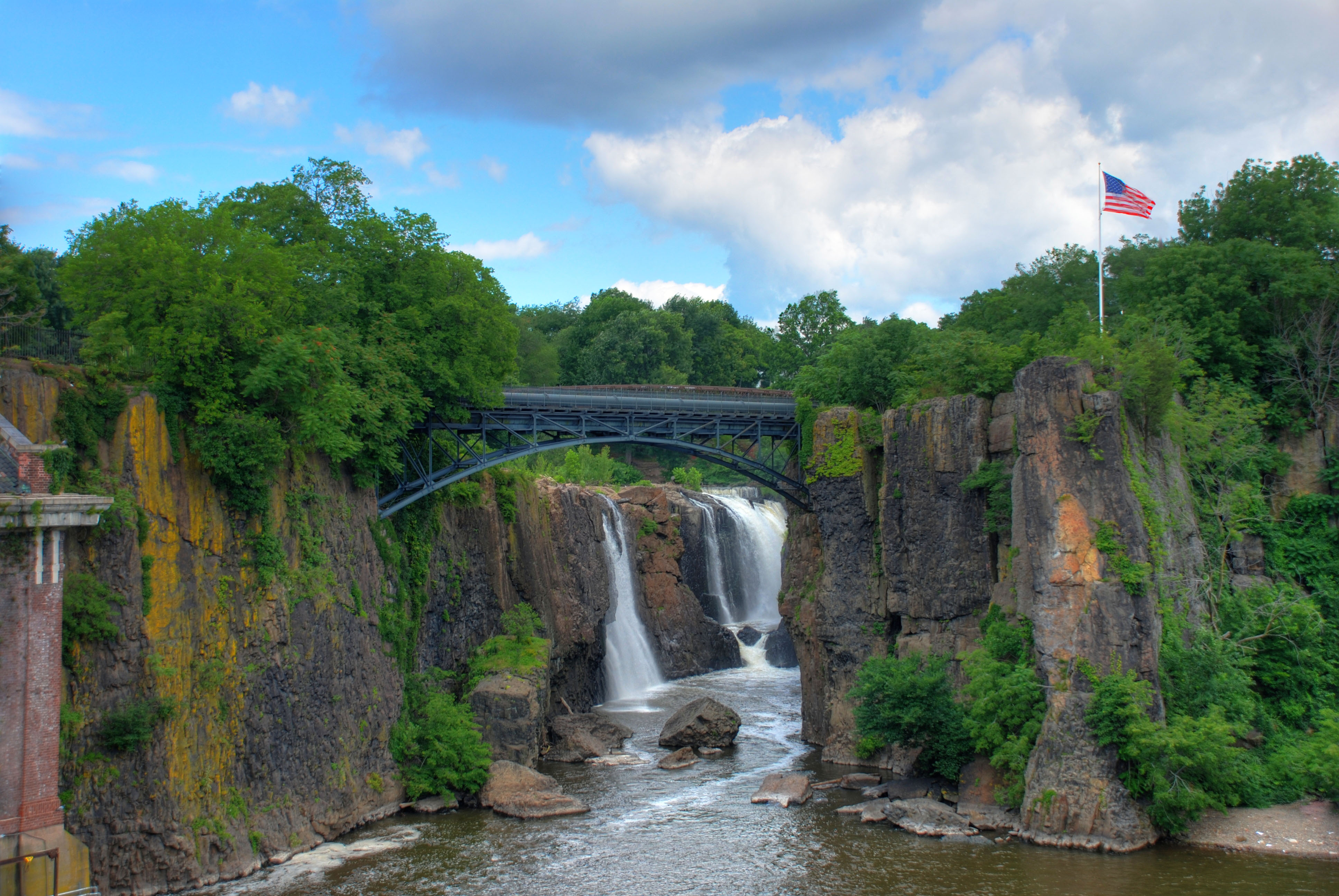 |
| commons.wikimedia.org |
By Marcus Miles
The Passaic River used to be a beautiful sight but then the manufacturing industry came into play and has changed the river ever since. According to npr.org, “Layers of pollutants sit at the bottom of the lower end of the river. It's predicted to take years to rid the Passaic of dangerous chemicals and it will cost billions." Furthermore, runoff from parking lots and roads adds to erosion and poisoning of the river.
The poisoning reached as far as the Great Falls in Paterson and living not far from the site, over the years I witnessed the river become contaminated and recently haven't see any progress. This summer there will be city council meetings in Paterson to set up a clean-up plan regarding the city and the Great Falls.
New Jersey's Passaic River became a framework of the country’s inexperienced industrial business. Because of the contamination in the river parts of New Jersey are paying the price. The river begins in the hills of Morris County and runs about ninety miles to Newark Bay and is becoming one of the toughest clean up jobs in the country. Because of all the manufacturing in small towns and cities, this created a series of dumping areas and many people thought it would be a good idea to continue to dump waste into the Passaic River. This would go on for decades with the river used to flush away sewage and industrial waste.
According to NorthJersey.com “Some parts of North Jersey are a lot like Flint, Mich.: old, industrial and poor, with many people living in houses built before World War II, drinking tap water that streams through pipes and fixtures made of lead.” Paterson is one part of the pattern of pollution in the Passaic River. New Jersey's largest city, Newark, is just miles downstream. Recently, people in Newark are reporting that lead is appearing in their drinking water. Between these two cities, the river has suffered two centuries of human garbage and manufacturing junk.
The river became so badly contaminated that the state Department of Environmental Protection banned eating fish that people catch in the river. The disappointing thing is that it getting worse day by day. According to npr.org “Some pollution experts say if you scrape away one layer of poison in the river, you find another. Deadly dioxin covers a layer of mercury. Dig deeper and you find polychlorinated biphenyls — PCBs — which were once used as coolants and insulating fluids.”
Deadly dioxin and yet no one seems to care about this issue, which is hard to understand because people's loved ones are becoming sick and dying.
On March 31, police discovered a dead body in the Passaic River in Paterson. Not only there are toxics, there are also dead bodies appearing in the river and still no alarming reaction. This is the water that people consume and fish in and no major clean up job is in effect. It seems like the government and other environmental organizations are not attempting a cleanup because they do not see how they will benefit from this situation financially.
My father, Bobby Miles, who currently works for DPW, says there are meetings among workers and government officials in Paterson every summer concerning the Great Falls area of the Passaic River. He said “they are not willing to spend large amounts of money for two reasons...Paterson simply does not have the funding for it and, second, they do not really care.” Paterson is the third largest city in the State of New Jersey, so one would think that there would be more attention to this issue but there isn’t.
The stretch of river in Newark and for several miles north is getting more attention. “The U.S. Environmental Protection Agency announced on March 4 its $1.4 billion plan to clean up the most polluted portion of the Passaic River, an area made so unhealthy from corporate dumping that people are forbidden from eating the carcinogenic fish and crabs that come from it,” nj.com reported.
This clean up would generate close to 500 jobs and EPA representatives say that taxpayers will not drop a single dime for this work. The clean up will be paid by more than 100 companies that caused the pollution in the river with chemicals they dumped. However, most of companies have not signed any documentation stating that they will support the clean up and take blame. Nj.com states that negations could take more than a year to complete and then another 10 years to devise a plan to start the cleanup.
Furthermore, EPA administrators said the plan to clean up the lower eight miles of the river will take over 11 years to be completed and even after the clean up is done the fish in the river still will not be safe to eat.
EPA Regional Administrator Judith A. Enck said there about 100 toxic compounds that have caused health problems for residents in Newark, including dioxin, a spin-off of the herbicide Agent Orange that was used throughout the Vietnam War and was manufactured by the former Diamond Alkali facility in Newark.
According to the EPA, short term exposure to dioxin may cause skin cancer and damage one’s liver. The long term effects may cause reproductive and developmental problems, trouble making hormones function, harm the immune system and thyroid function, and various kinds of cancer. Administrators state that the pollution from the river can also cause asthma.
The Passaic River is important because it is affecting many in the state and the sooner it is cleaned up the happier everyone will be.
Marcus Miles, a junior at Ramapo College of New Jersey, is majoring in Communication Arts: Journalism.
For more information
www.npr.org/2010/11/19/131167397/the-dirty-truth-about-that-other-jersey-shore
www.northjersey.com/community-news/tap-water-at-risk-closer-to-home-many-pipes-in-north-jersey-made-of-lead-1.1519652?page=all
www.northjersey.com/news/traces-of-toxic-chemical-found-in-north-jersey-water-supplies-1.1530489
patersontimes.com/2016/03/31/body-pulled-out-of-passaic-river-in-paterson-police/
www.nj.com/essex/index.ssf/2016/03/epa_14b_passaic_river_cleanup_will_be_paid_for_by.html
No comments:
Post a Comment